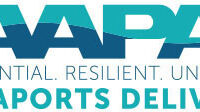Know Your RFP ABCs
Crafting the right project scope – whether seeking a bid or request for proposal – requires caution and an ability to learn from past mistakes.
By Sandy Smith

The coronavirus pandemic may have taken over the news and focus for early 2020, but it did not prevent the building process from continuing. That means bids were being let and jobs awarded, a hopeful sign of forward movement at a time when the world practically stopped.
But no matter what is going on globally, crafting the right project scope – whether seeking a bid or request for proposal – requires caution and an ability to learn from past mistakes.
“We try to be very specific in our template documents about our expectations, and we are always tweaking the templates based on lessons learned, every time we go through the process,” said George Isiminger, PE, senior director and port engineer, Manatee County (Florida) Port Authority. The process at the port includes a question-and-answer period. Any questions raised will bring an update posted on online services “so that everyone receives the same information.” To make that work, the port has a deadline for questions to ensure that the updated information can be shared well before the submittal deadline.
Donald Brinkman, PE, PPM, understands both sides of the bid process. He worked in Louisiana ports for more than a decade, and these days is the ports practice lead for architectural and engineering firm CSRS Inc.
Being on the receiving end of a request for qualifications – which tends to be used to procure professional services – is eye opening. He firmly believes “owners should know what goes on behind the scenes.”
There are keys to creating a successful request, whether for a proposal or qualifications, or as part of a competitive bidding process.
Understand the different terminology.
Some, like Manatee County Port Authority, call it an invitation to bid (ITB). Others, a request for proposal (RFP) or request for qualification (RFQ). The RFQ process is used particularly when seeking professional services, Brinkman said. States like Florida have specific processes for professional services.
Know the importance of advance notifications.
This may mean giving existing consultants a heads-up that a project or request for qualifications is coming. Brinkman said this advance warning is “a big deal. “If something comes out that catches a firm by surprise, they will typically evaluate whether they have time and resources to respond.”
Based on that factor alone, Brinkman said, a request may ultimately fail to deliver the number of responses. It may also convey that the project owner already has a company in mind, but is following the required steps of soliciting multiple RFQs or bids.
If that’s the case, Brinkman urges honesty. “Creating a proposal is a significant investment of time for both the port/project owner and the proposing company. If you’ve already got somebody in mind and your procurement policy allows you to hire them, go ahead and do it. Everyone’s time is valuable.”




